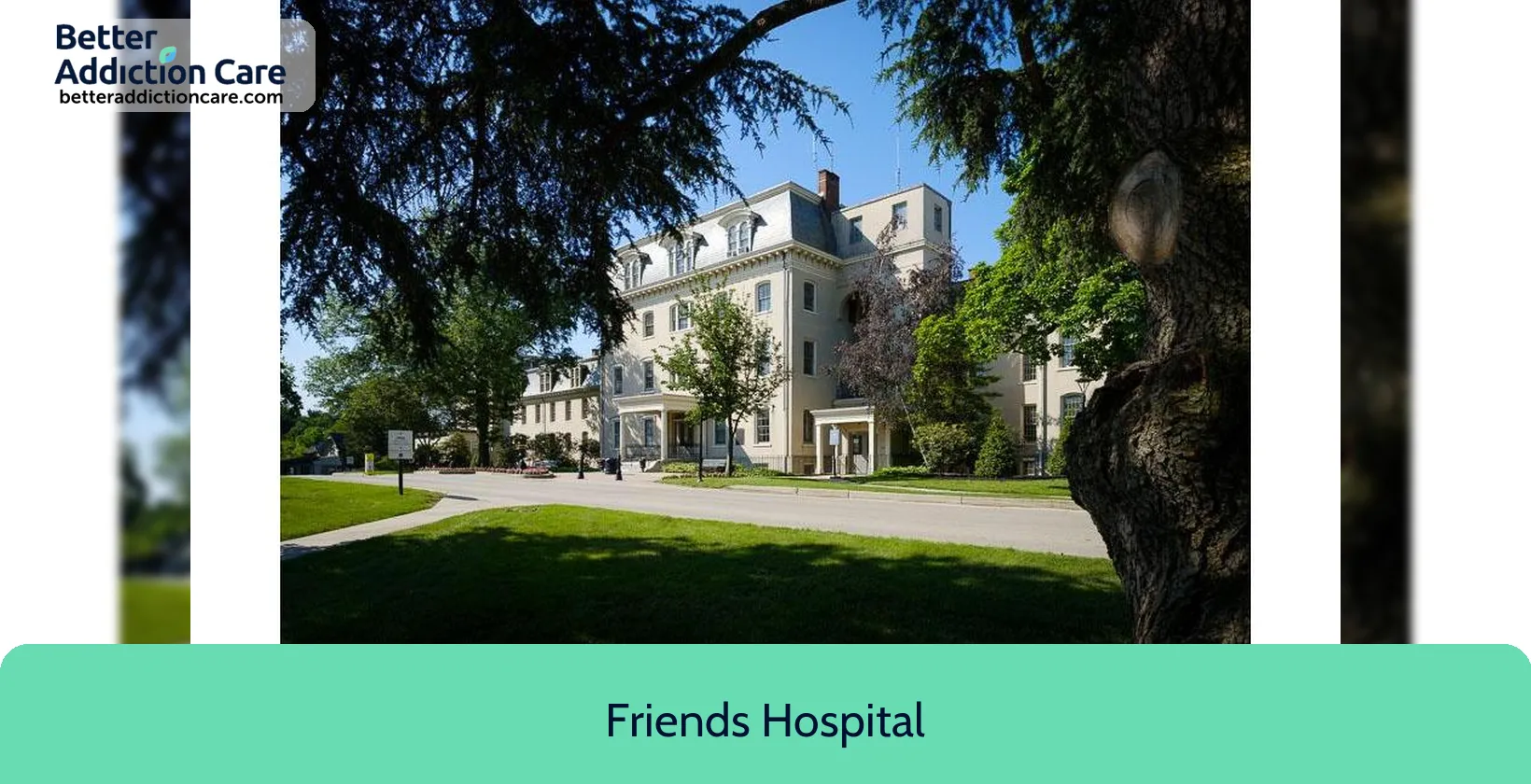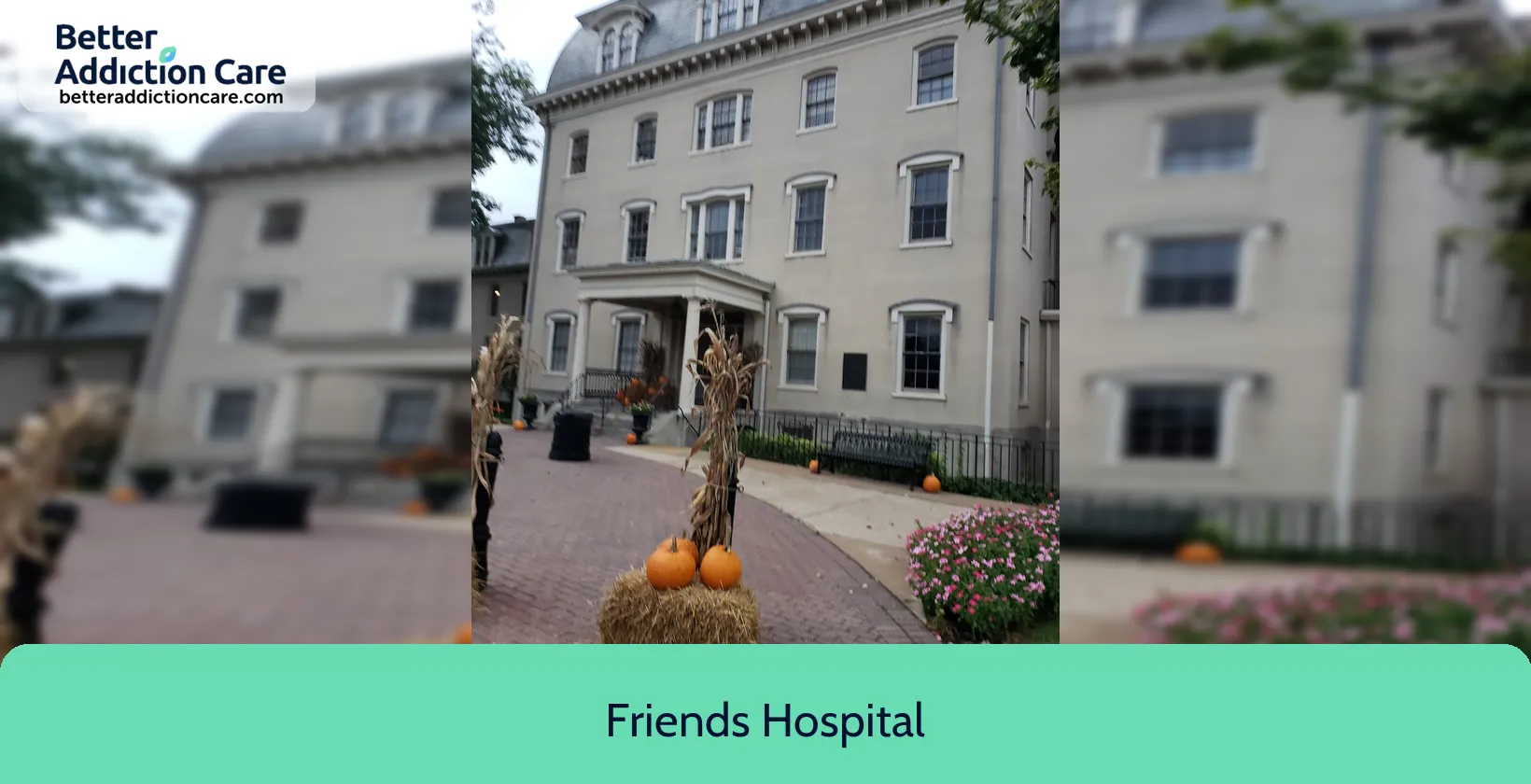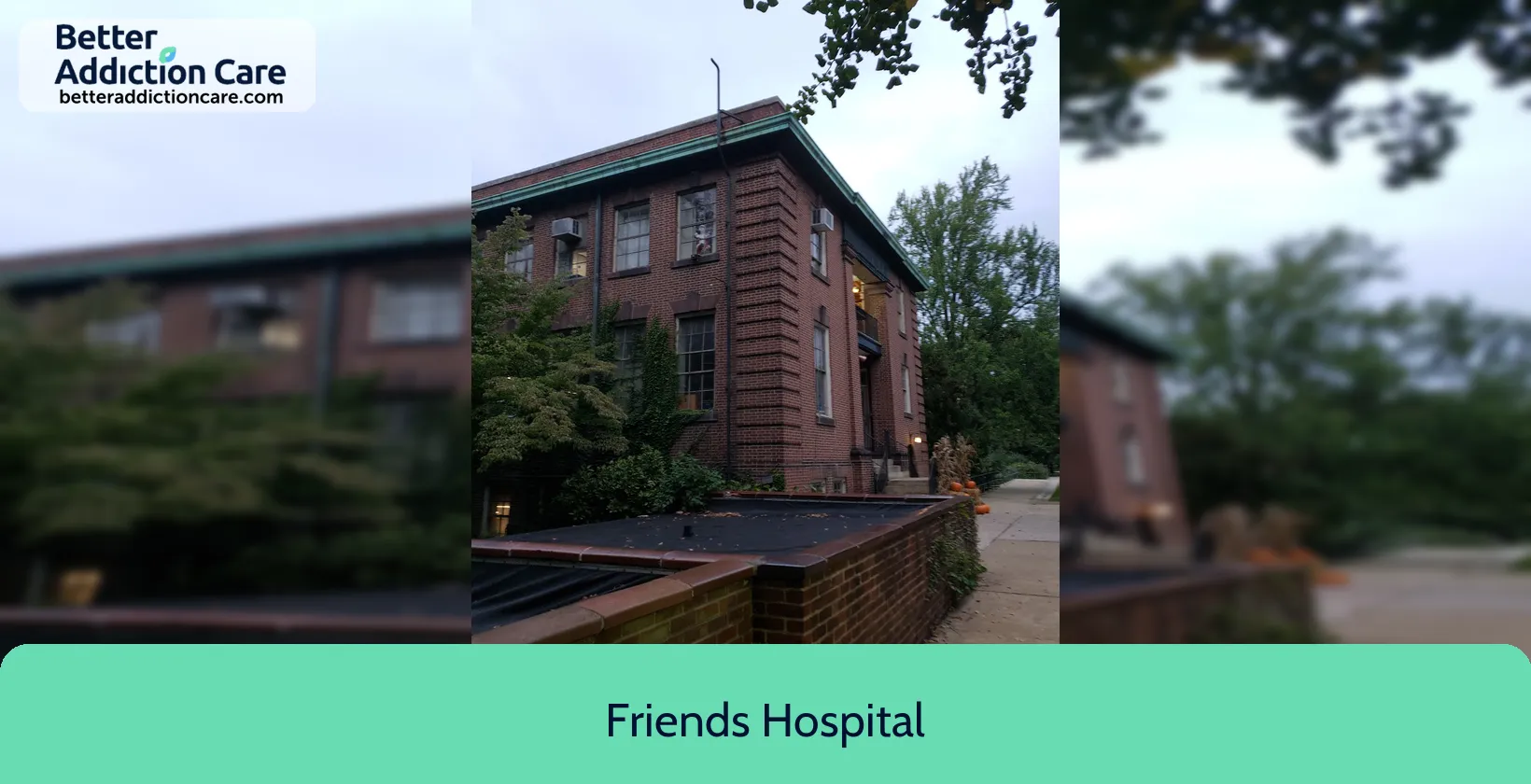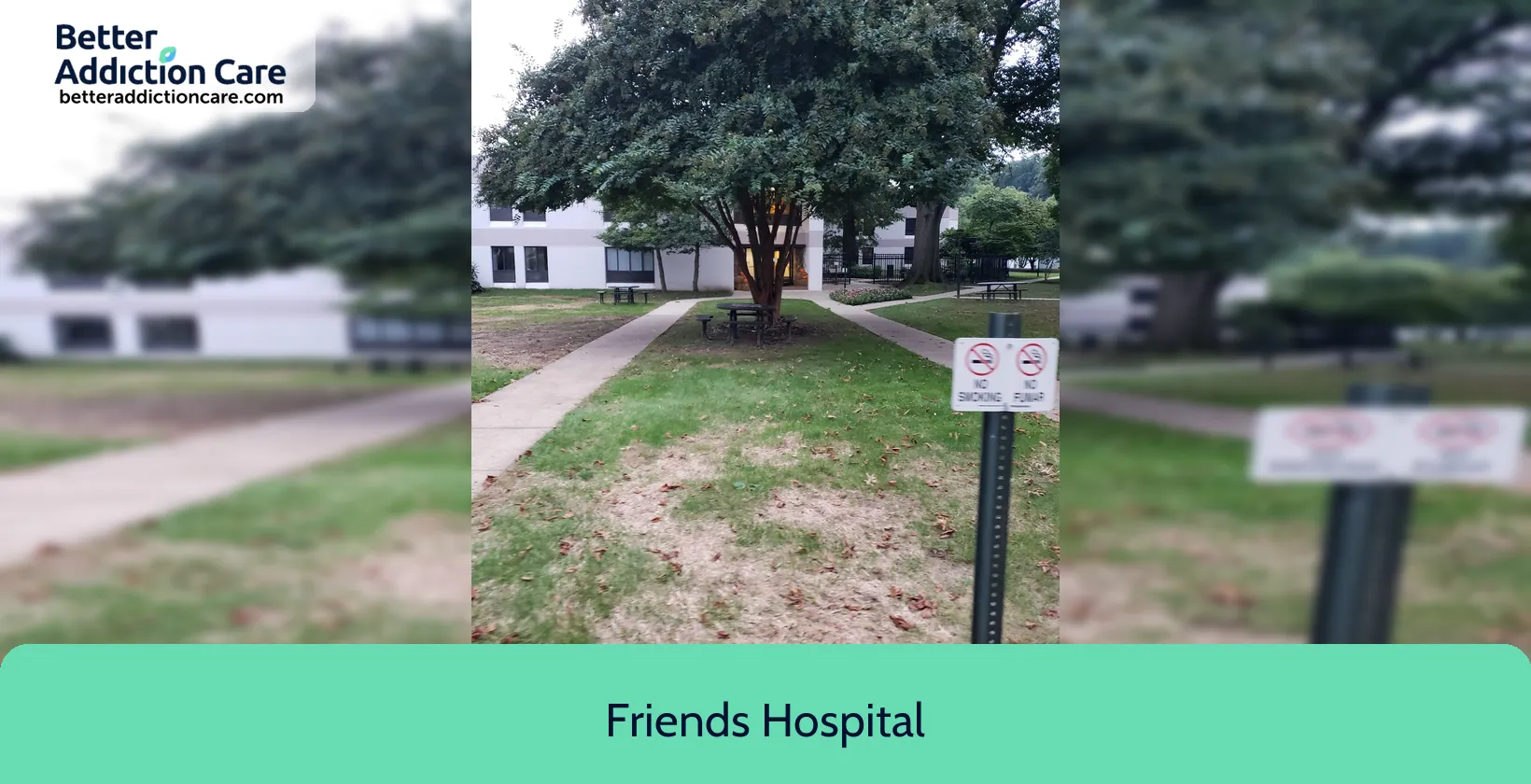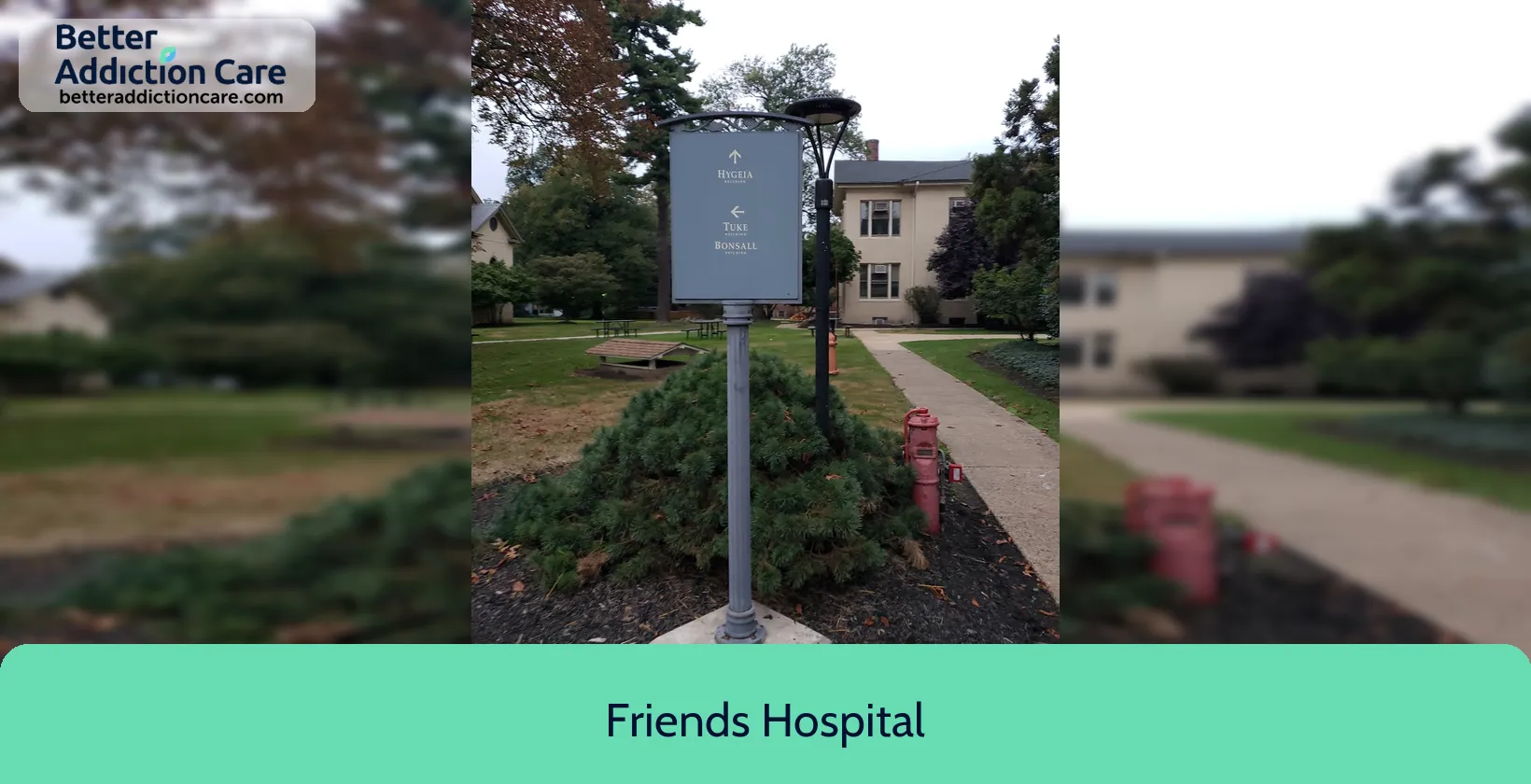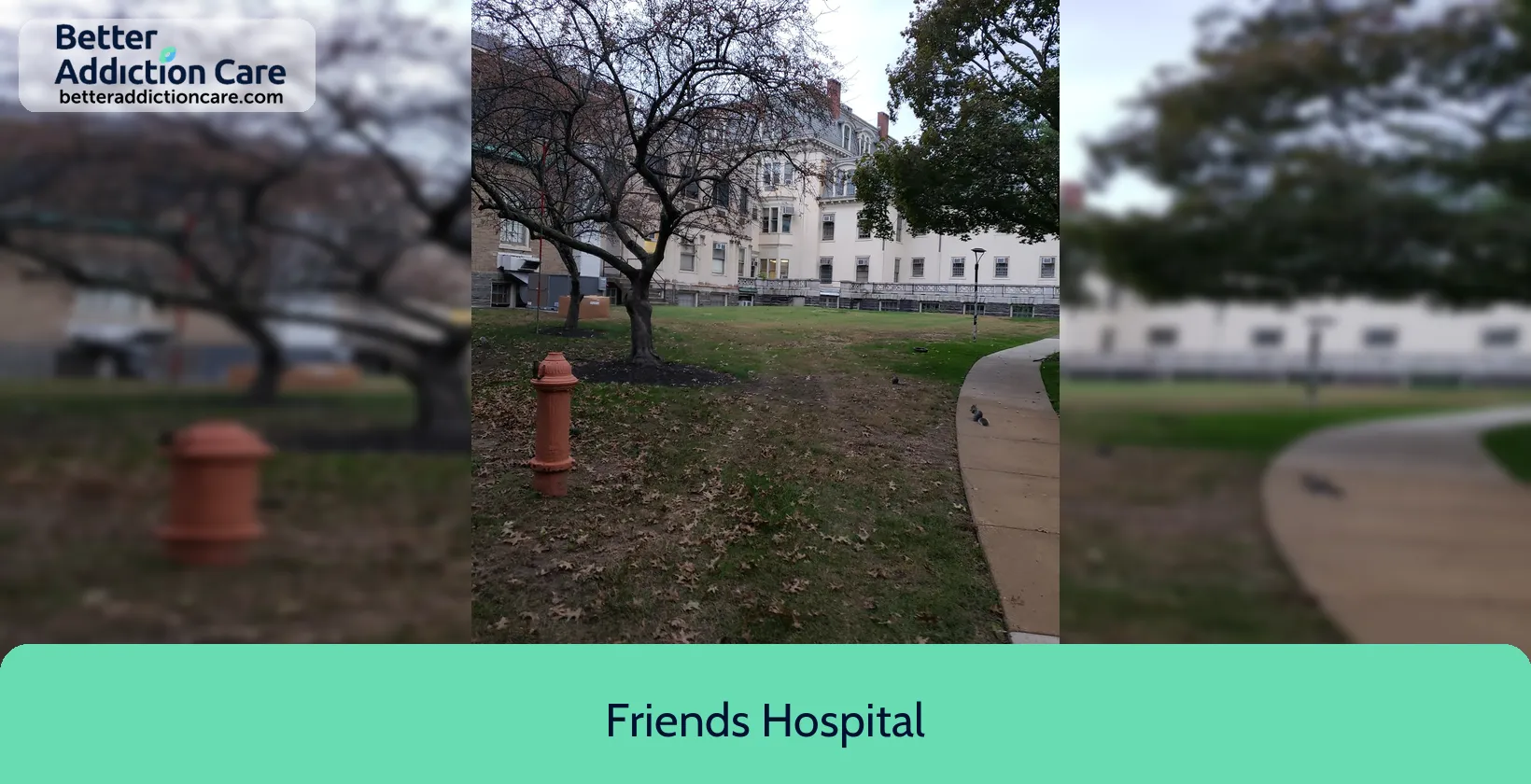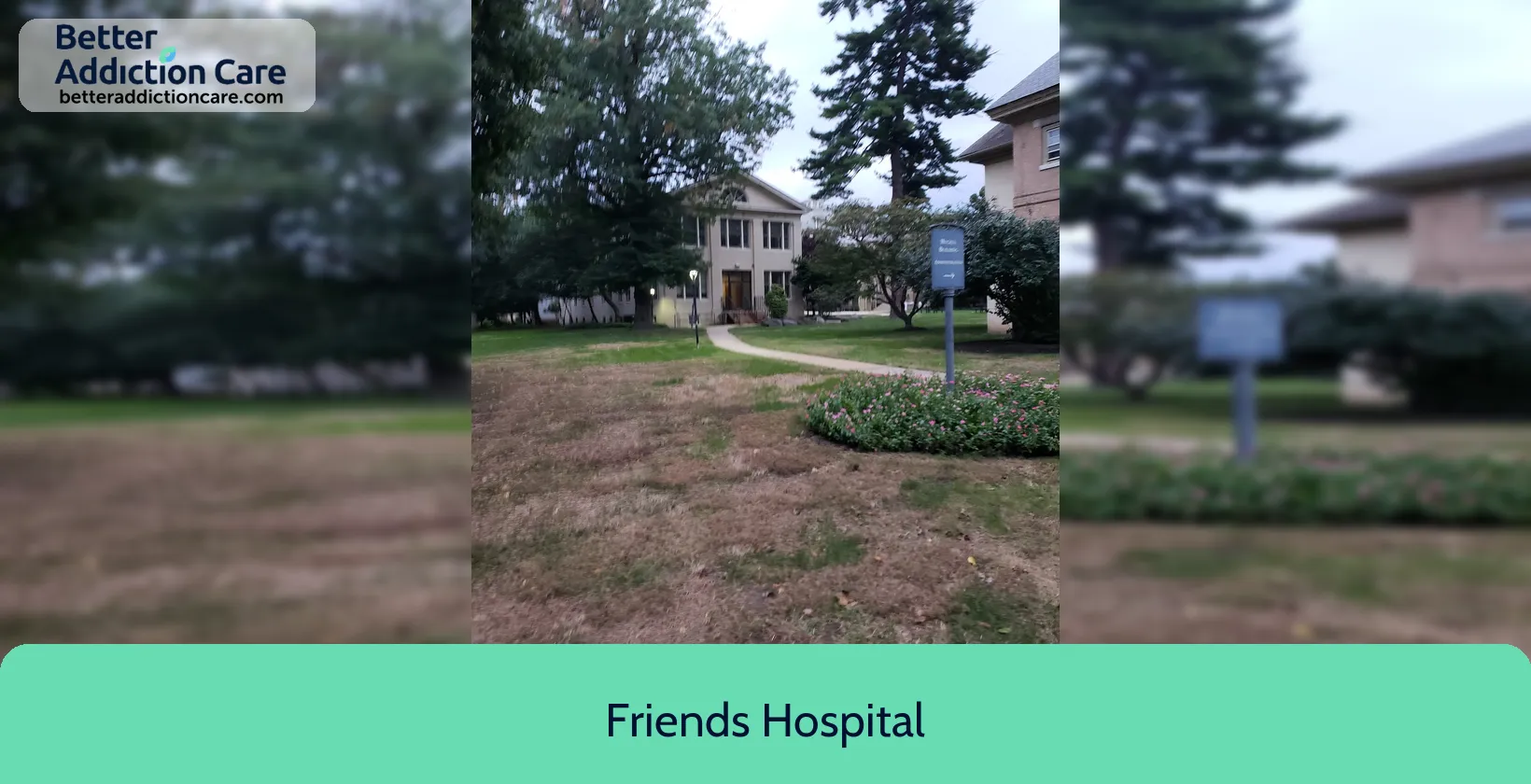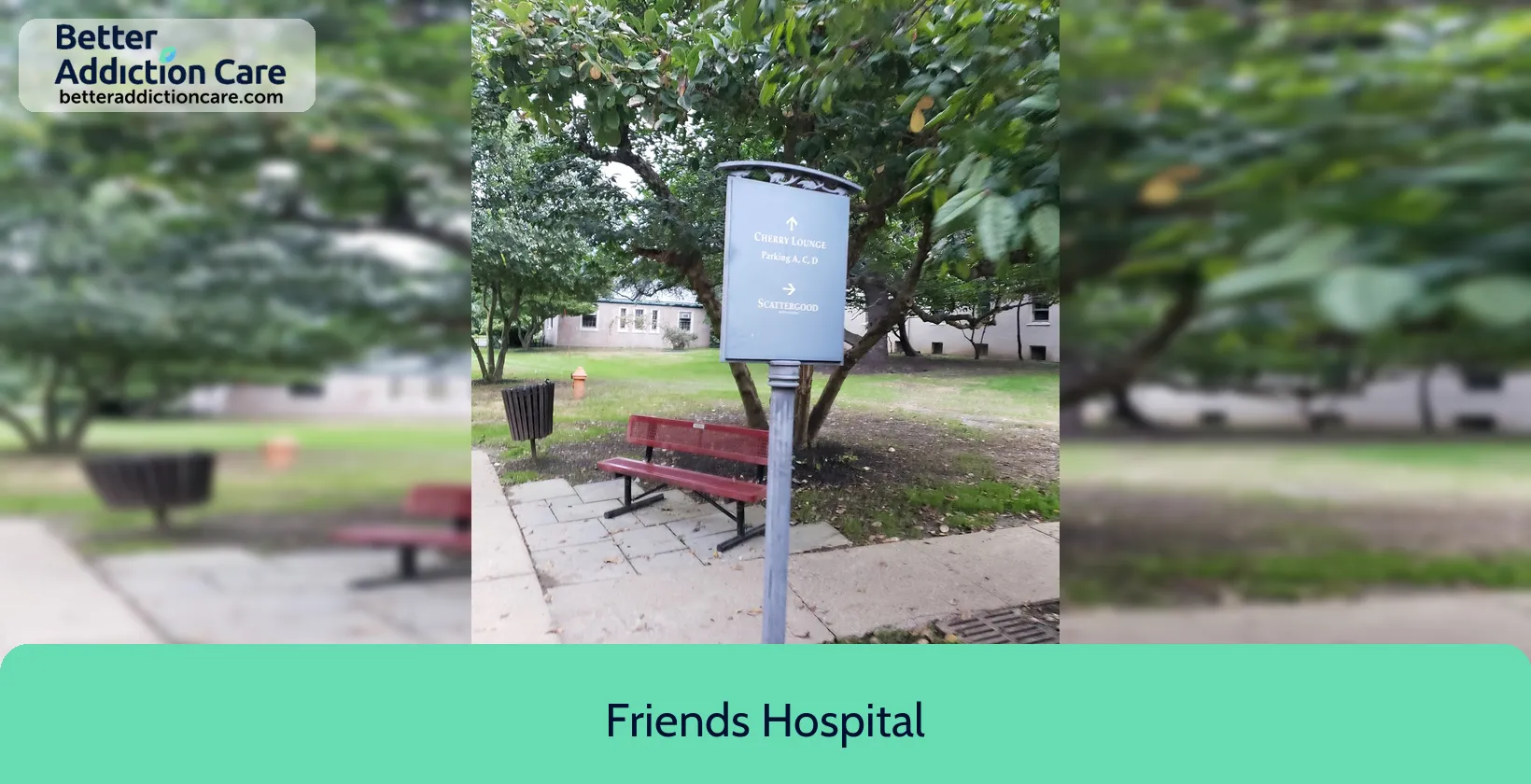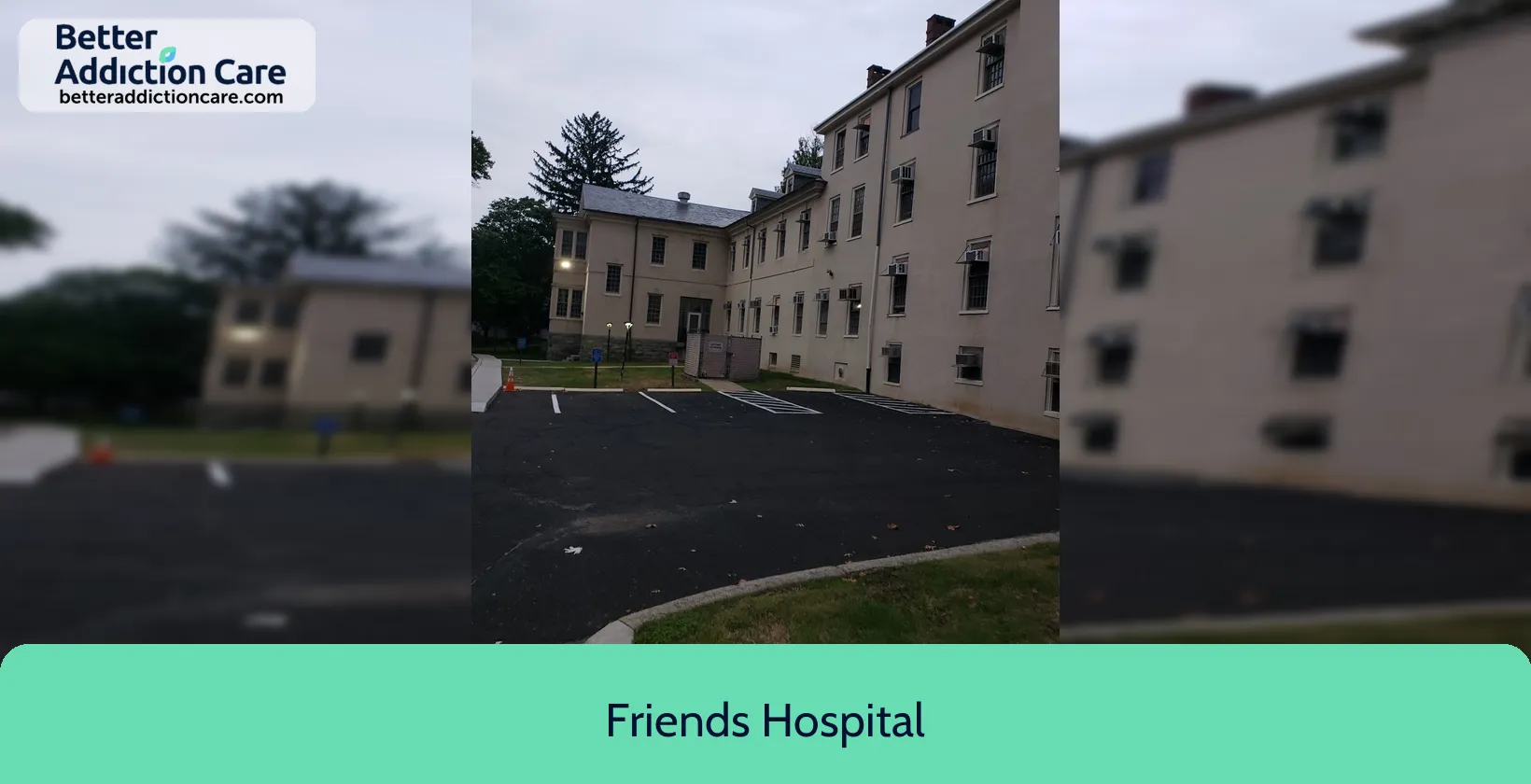Friends Hospital
Overview
Friends Hospital is a mental health treatment center for people seeking treatment near Philadelphia County. As part of their treatment modalities for recovery, Friends Hospital provides couples/family therapy, group counseling, and cognitive behavioral therapy during treatment. Friends Hospital is located in Philadelphia, Pennsylvania, accepting cash or self-payment for treatment.
Friends Hospital at a Glance
Payment Options
- Cash or self-payment
- Medicaid
- Medicare
- State-financed health insurance plan other than Medicaid
- Private health insurance
Assessments
- Screening for tobacco use
- Comprehensive mental health assessment
- Comprehensive substance use assessment
Age Groups
- Seniors or older adults
- Young adults
- Children/adolescents
- Adults
- Seniors
Ancillary Services
- Diet and exercise counseling
- Education services
- Family psychoeducation
- Integrated primary care services
- Psychosocial rehabilitation services
Highlights About Friends Hospital
6.65/10
With an overall rating of 6.65/10, this facility has following balanced range of services. Alcohol Rehabilitation: 8.00/10, Drug Rehab and Detox: 6.00/10, Insurance and Payments: 6.00/10, Treatment Options: 6.61/10.-
Alcohol Rehabilitation 8.00
-
Treatment Options 6.61
-
Drug Rehab and Detox 6.00
-
Insurance and Payments 6.00
Treatment At Friends Hospital
Treatment Conditions
- Mental health treatment
- Substance use treatment
- Co-occurring Disorders
Care Levels
- Hospital inpatient/24-hour hospital inpatient
Treatment Modalities
- Couples/family therapy
- Group counseling
- Cognitive behavioral therapy
- Dialectical behavior therapy
- Activity therapy
Ancillary Services
Languages
- Sign language services for the deaf and hard of hearing
- Spanish
Special Programs
- Children/adolescents with serious emotional disturbance (SED)
- Persons 18 and older with serious mental illness (SMI)
Get Help Now
Common Questions About Friends Hospital
Contact Information
Other Facilities in Philadelphia
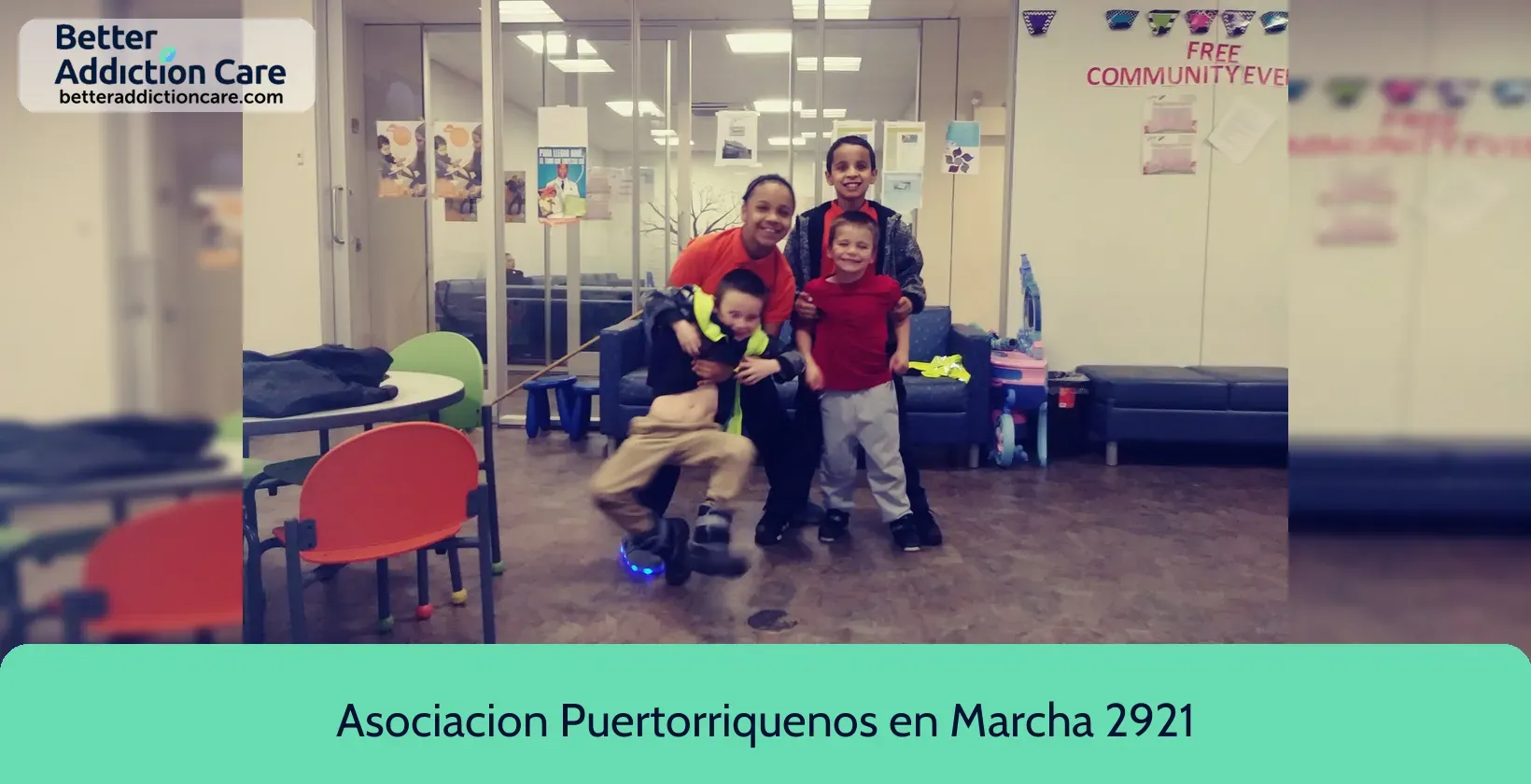
7.63

6.68
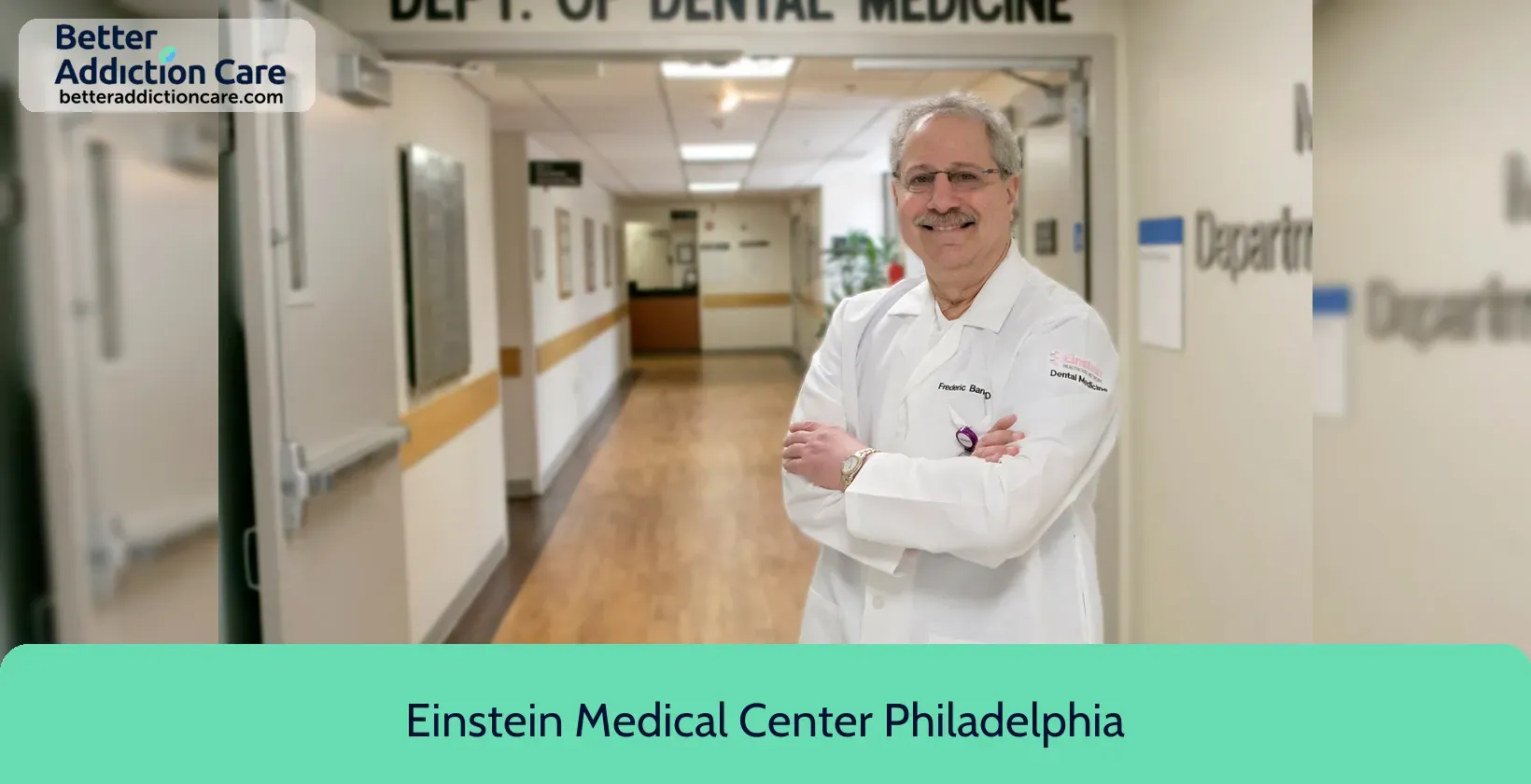
6.62
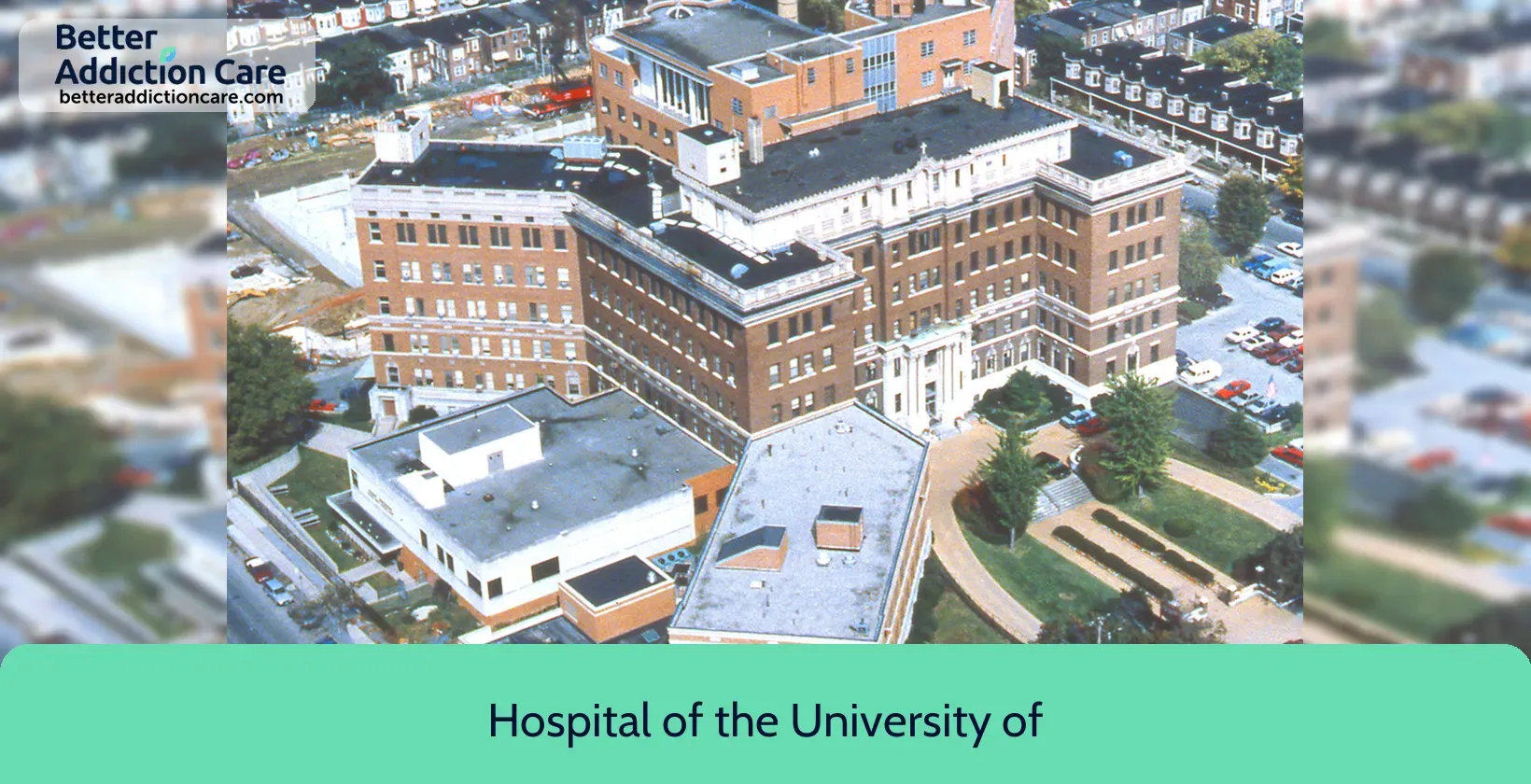
7.22
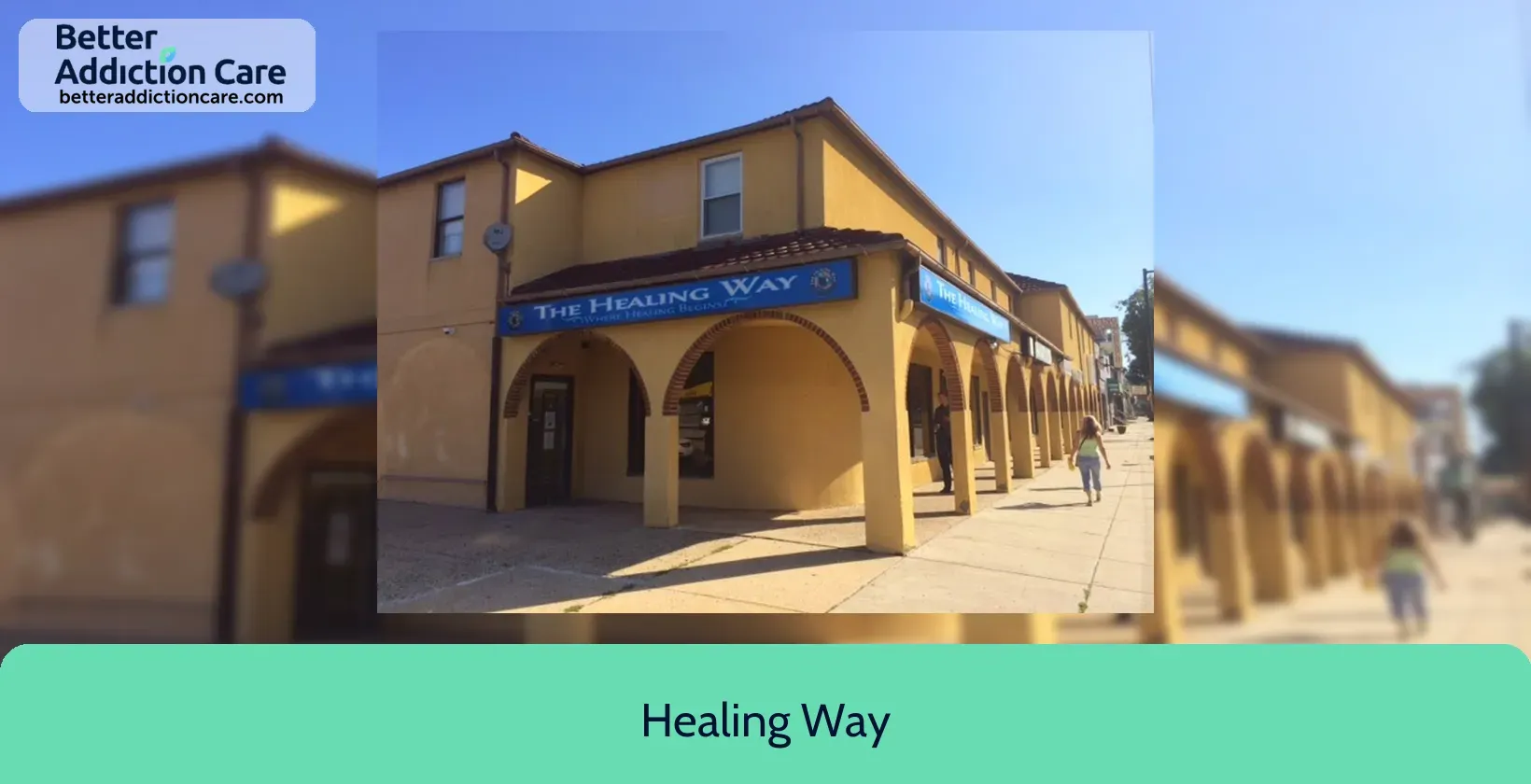
7.67

7.53
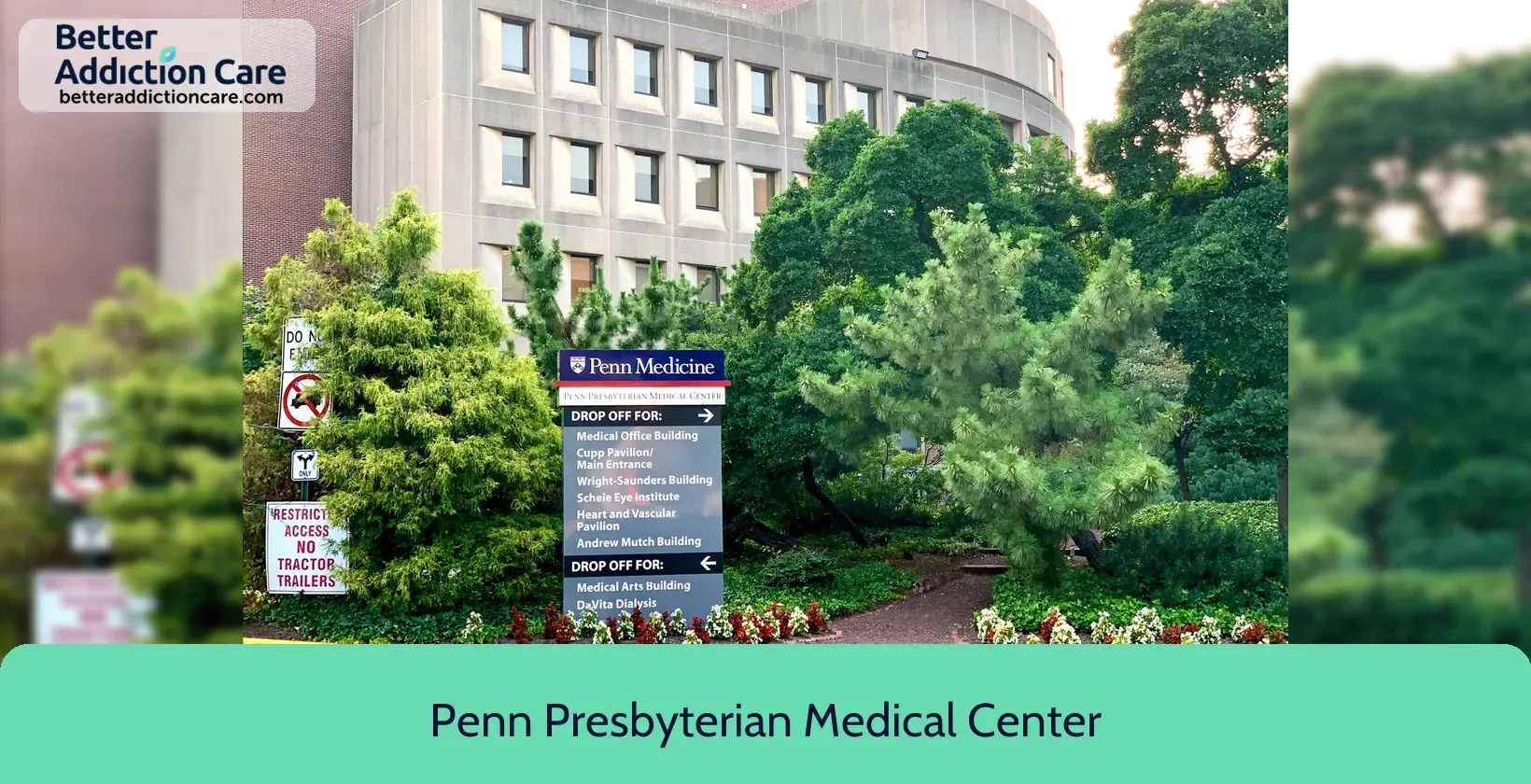
7.67

7.62
DISCLAIMER: The facility name, logo and brand are the property and registered trademarks of Kirkbride Center, and are being used for identification and informational purposes only. Use of these names, logos and brands shall not imply endorsement. BetterAddictionCare.com is not affiliated with or sponsored by Kirkbride Center.
